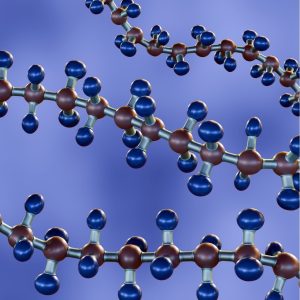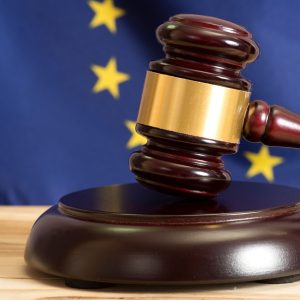Life Sciences & Biotech
Our Clients
Schlich acts for a wide range of life sciences clients who cover the gamut of enterprises from start-up businesses to large multinational corporations, from universities to mature businesses via spin out companies. Every company is unique and thus every organisation has different needs.
Our team of life sciences attorneys tailor the service we provide to match the varying aims of our clients. We are well versed in supporting the different needs of our clients, whether that is supporting a multinational business with a large existing portfolio of patent rights or a developing business founded on protecting unique technical developments.


Life Sciences & Biotech
Claiming and Protecting Your Inventions
Our Schlich attorneys are well versed in understanding and claiming rights to inventions in the life sciences arena. We prepare and file patent specifications for all aspects of life sciences technologies: from stem cell technologies to DNA-editing systems; from improved antibodies to novel microbes; from medical devices to small molecule pharmaceuticals.
Whilst our core expertise is in Europe, we have extensive experience in securing patent rights in the USA, Japan, Canada, Australia, India, China and other major marketplaces. Furthermore, we have a wide network of associates in other jurisdictions with whom we co-operate in order to gain the broadest commercially useful patent rights that we can achieve. In this way, the value of a client’s intellectual property can be best protected and realised.
Start Up Companies
Start-up companies often require significant assistance in ensuring efficient use or resources to add value to the company and obtain useful protection. We understand that patent rights and intellectual property can be the most valuable possessions owned by a start-up. Thus, our role is often to understand and advise on the efficient deployment of resources in order to protect their valuable technical advances and better develop their business.
Developing Businesses
However, sometimes the transition of a business from start-up or spin out to maturity means that in-depth intellectual property advice is required as part of the foundation and organisation of a firm. To achieve this, one of our attorneys can be intimately involved with the early commercial aspirations of our client. Thus, in addition to obtaining patent rights, we can monitor and analyse the patent rights and pending patent claims owned by competitors. We also review and analyse the state of the marketplace and the effect that ongoing deals will have on our client’s business. Thus, we are able to support a developing business through from drafting the original patent applications and guided their prosecution with the support of our associates in the relevant countries.
Large Firms
Multinational corporations may have larger internal departments whose staff have significant experience in relation to filing and prosecution of patent applications. However, multinational breadth means that detailed jurisdiction-specific advice in often needed to obtain optimum protection. While the intention of different national patent systems can be the same, navigation of the differences between jurisdictions will often require a local expert to avoid the pitfalls. This is notably the case when jurisdictions have subtle but important differences in law and practice, e.g. between the USA and the European Patent Organisation. These differences can appear slight, but can have a significant effect on the rights an applicant can obtain.
One example of this is in the drafting and prosecution of patent application relating the developments in and the optimisation of CRISPR technologies. The CRISPR-Cas system is a Nobel-prize winning leap forward in gene editing technology and the pace of its commercial development has been intense. Schlich acts for Intellia Therapeutics, Inc., both in relation to the drafting and prosecution of patent applications relating to the development and improvement of CRISPR-Cas-based gene editing, and also in opposing the patent claims of potential competitors.
Contentious Proceedings
Schlich attorneys are experienced in contentious Proceedings before the European Patent Office (EPO) and before the UK Intellectual Property Office (UKIPO). Our attorneys are skilled in delivering cost-effective advice when considering, preparing, and prosecuting contentious Proceedings. Our focus is always on yielding commercially relevant results for our clients.
By way of example, and to continue the case study above, Schlich attorneys have successfully opposed patent claims for fundamental aspects of the use of the CRISPR system in eukaryotes. Other patents have been opposed, and limited in their scope to versions comprising particular features, such as specific guides, enzymes from unusual organisms, or changes to the enzymes. In this way, our clients are better able to operate in the marketplace. However, appeals are ongoing and Schlich attorneys will be in attendance to continue to defend our client’s position.
Our specialist patent attorneys
Our UK and European Patent Attorneys and Chartered Trade Mark Attorneys have degrees and Ph.Ds from top UK Universities, but are qualified by experience at the coal face of cutting edge, and critically commercial, technologies.
Recent Insights
Read the latest insights from the Schlich team reporting recent cases relevant to the life sciences & biotech sector.
G 1/23 confirms that products placed on the market before the effective date of a European patent application constitute prior art, regardless of whether they can be reproduced
On 2 July 2025, the EPO’s Enlarged Board of Appeal (EBA) issued its decision in G 1/23. The referral stemmed from T 0438/19, an appeal against the decision of an opposition division to reject an opposition against a European patent directed to a material for encapsulating a solar cell which comprises an ethylene/alpha-olefin copolymer with certain defined properties, including a content of aluminium element of from 10 to 500ppm. D1 disclosed a commercially available copolymer, ENGAGE® 8400, which the opponent/appellant sought to rely on as the closest prior art for their inventive step challenge; however, the Patentee argued, with reference to G 1/92, that ENGAGE® 8400 cannot be reproduced (i.e., it is not enabled) and therefore it has not been made available to the public within the meaning of Article 54(2) EPC and thus is not a suitable starting point for the assessment of inventive step. Grappling with how to interpret G 1/92, the Board in T 0438/19 referred three questions to the EBA focused on understanding whether a commercial product, put on the market before the filing date of a European patent application, can be excluded from the state of the art for the sole reason that it could not be reproduced. The EBA has now answered, and the short answer is no!
South Africa Introduces New Plant Variety Rights Act Echoing the EU System
South Africa follows in the EU’s footsteps with new Plant Variety Rights Act which draws many parallels to the existing EU system
A Legal Framework for Considering Second Medical Use Claims at the UPC: Sanofi vs Regeneron
The jurisprudence of the United Patent Court (UPC) is relatively new and thus new aspects frequently arise. A decision of the Dusseldorf local division of the UPC may provide a framework for assessing infringement of second medical use claims, which might be persuasive to other UPC courts.
Safestand stands taller as Court of Appeal finds trestle designs valid
The recent Court of Appeal decision in Safestand Limited v Weston serves as a reminder of the importance of ensuring that representations provided as part of a design application are clear and consistent so as to ensure that upon an objective assessment, the representations are found to relate to a single product and not a collection of different embodiments.
Landmark CJEU judgement opens up new avenues for European patent litigation
In a recent landmark judgement, the CJEU confirmed the possibility of European patent holders being able to consolidate actions for patent infringement across multiple EU and non-EU member states at a single EU court. For patent holders looking to assert their IP in an efficient, and likely more cost-effective and harmonious manner, the implications of the CJEU decision on enforcement strategies before both national courts and the UPC are noteworthy.
UK to Second Medical Use SPCs: Thanks, But No Thanks
Background of Supplementary Protection Certificates (SPCs) SPCs are heavily relied on by pharmaceutical companies to extend the period of patent protection. Under the current regulations, SPCs can only be granted if the product is: 1) protected by a basic patent in force; 2) a marketing authorisation has been issued to place that product on the […]
EPO Tightens Patent Rules for Medical Data Processing Innovations
Background and First Instance Decisions In Europe, claims directed toward mathematical methods are allowable only if it is clear that they contribute to the “technical character” of an invention. Under European practice, to assess the inventive step of a mathematical method claim, it is evaluated whether the method contributes to the “technical character” of the […]
UniQure’s Haemophilia B gene-therapy patent found valid – and infringed by Pfizer
The range of gene-therapies available to patients is ever expanding and it was only a matter of time before a conflict arose that had to be considered by the UK patent courts. Now uniQure has defended its patent for a Haemophilia B gene therapy against a revocation action brought by Pfizer.
Get in touch

Our team of UK and European Patent Attorneys and Chartered Trade Mark Attorneys are highly knowledgeable and experienced in assisting clients with all aspects of their IP needs.
Contact us now to find out more about how we could help you and your business.















